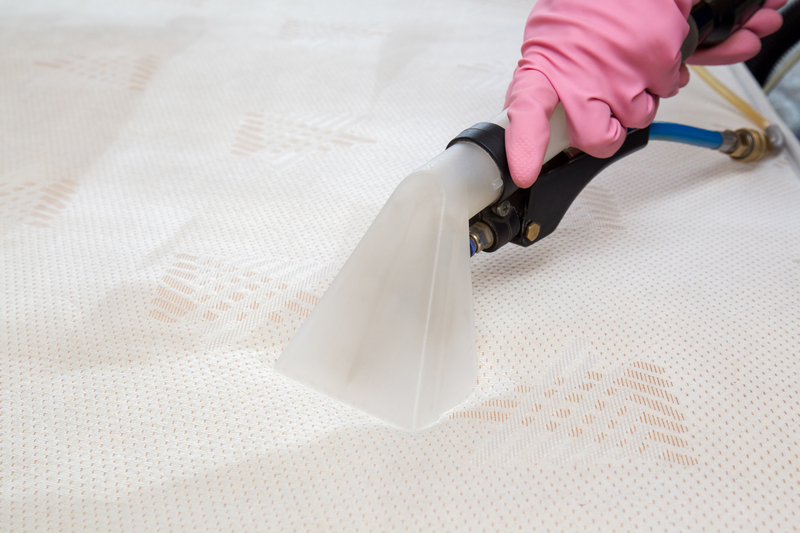Reclaim Your Home from Lingering Pet Odors
Posted on 07/09/2025
Reclaim Your Home from Lingering Pet Odors: The Comprehensive Guide
Living with pets brings joy, companionship, and warmth to any home. However, it can also introduce one unwelcome guest: lingering pet odors. If you're struggling to keep your living space fresh, you're not alone. From subtle dog smells to stubborn cat urine, pet odors can quickly overwhelm even the most diligent homeowners.
In this in-depth guide, we'll explore proven strategies to eliminate pet odors, prevent recurring smells, and restore the inviting atmosphere you love. Whether you have a single cat, a pack of dogs, or a menagerie of furry friends, read on to discover practical, Google-friendly solutions for reclaiming your home from lingering pet odors.

Understanding the Causes of Lingering Pet Odors
Before you can effectively remove pet odors, it's essential to understand where they come from and why they stick around. Common sources of lingering pet smells include:
- Urine and feces accidents (even small or "hidden" spots)
- Saliva, oils, and dander released by your pet's skin and fur
- Pet bedding, toys, and fabric surfaces that trap odors
- Improper cleaning or using products that mask rather than neutralize odors
- Unwashed litter boxes, crates, and cages
Understanding these origins will guide your approach to banishing persistent pet odors and preventing future problems.
The Science of Pet Odors: Why Do They Persist?
Pet odors linger because of organic compounds, bacteria, and proteins left behind by your animals. These microscopic particles settle deep within porous surfaces like carpets, upholstery, and even hardwood floors. Some odors, especially those from cat urine, are notorious for resurfacing after traditional cleaning due to their potent alkaline crystals and ammonia content.
Odor Masking vs. Odor Neutralizing
Many homeowners reach for air fresheners or scented sprays, but these methods simply mask smells. Odor neutralizers and enzymatic cleaners, on the other hand, break down odor-causing chemicals at the source, providing long-lasting relief. Recognizing the difference is crucial for achieving a truly clean, odor-free home.
Step-by-Step Guide to Removing Pet Odors from Your Home
1. Identify and Locate the Source of Pet Odors
- Perform a thorough inspection of your home, paying special attention to hidden corners, behind furniture, and underneath rugs.
- Use a UV blacklight in darkened rooms to spot dried urine stains invisible to the naked eye.
2. Remove and Wash Affected Fabrics
- Wash all removable fabrics--pet bedding, cushion covers, slipcovers--in hot water with a dash of baking soda for extra deodorizing power.
- Add a cup of white vinegar to laundry loads; it acts as a natural odor eliminator and softener.
- Sun-dry whenever possible, as UV rays naturally deodorize and disinfect fabrics.
3. Deep Clean Carpets and Upholstery
- Rent or invest in a carpet cleaner with enzymatic solutions specifically designed for pet urine and odors.
- For spot cleaning, blot (don't rub) fresh stains with paper towels, then apply an enzyme-based cleaner generously. Allow it to penetrate deeply.
- Repeat cleaning for stubborn stains and smells that persist after the first treatment.
4. Address Hard Floors and Surfaces
- Sweep and mop hard floors regularly using pet-safe, odor-neutralizing cleaners.
- For hardwood, be cautious with moisture and opt for products recommended by floor manufacturers to avoid damage.
5. Tackle Pet Toys, Collars, and Accessories
- Wash soft toys and collars in the washing machine or by hand with mild soap and a little vinegar.
- Scrub rubber or plastic toys with warm soapy water, then rinse thoroughly and let air dry.
6. Regular Care for Litter Boxes, Cages, and Crates
- Scoop litter boxes daily and change litter at least once a week.
- Disassemble and disinfect crates and cages with pet-safe cleaners, rinsing well before reassembly.
- Consider using odor-absorbing materials like baking soda or charcoal within litter boxes.
7. Clean the Air: Filters and Fresheners
- Change HVAC and air purifier filters every 1-2 months to trap airborne particles and control pet smells.
- Use activated charcoal bags or baking soda containers around your home to passively absorb odors.
- Diffuse pet-safe essential oils like lavender or lemongrass to add a clean, inviting scent.
DIY Natural Remedies for Pet Odor Removal
If you prefer eco-friendly solutions, try these effective, budget-friendly remedies:
- Baking Soda: Sprinkle liberally on carpets and furniture, let sit overnight, then vacuum thoroughly. Its natural absorption properties combat even deep-set odors.
- White Vinegar: Mix equal parts vinegar and water to wipe down hard surfaces or add to laundry for extra odor-fighting power.
- Lemon Juice: Dilute and use to wipe floors or clean bowls; it leaves surfaces sparkling and smells fresh.
- Activated Charcoal: Place bags in rooms or closets to absorb stubborn smells invisibly and safely.
Always patch-test any remedy on delicate fabrics and surfaces before widespread use to avoid possible discoloration or damage.
Preventing Future Pet Odor Build-Up
The best way to reclaim your home from lingering pet odors is to adopt habits that keep smells from returning. Incorporate these routines to maintain a consistently fresh living environment:
- Groom your pets regularly to reduce fur, dander, and skin oils that contribute to odor build-up. Bathing frequency depends on your pet's breed and needs.
- Vacuum carpets, drapes, and furniture at least twice weekly, using a vacuum equipped with a HEPA filter for maximum efficiency.
- Wash pet bedding and soft toys on a bi-weekly basis.
- Establish a cleaning schedule for litter boxes, cages, and other pet zones in your home.
- Promptly attend to accidents--the quicker you clean, the less likely odors will permeate.
- Keep doors and windows open for daily ventilation when weather permits; fresh air disperses trapped odors fast.
When to Call a Professional Odor Removal Service
In some cases, do-it-yourself techniques may not completely resolve persistent pet odors. If odors resurface after repeated efforts, or if your home has extensive carpets or upholstery, consider these signs it's time to hire professional help:
- You notice a lingering "wet dog" or ammonia smell despite cleaning.
- You have multiple, large, or old urine stains in carpets or flooring.
- Allergy or asthma symptoms are worsened by poor indoor air quality.
- Your home is on the market and pet smells may deter buyers.
Professionals use industrial-grade enzymatic cleaners, ozone machines, and advanced extraction tools to completely eliminate deep-set pet odors, restoring a truly fresh environment quickly and effectively.
Pet Training and Environmental Management: The Key to Lasting Odor Control
Eliminating pet odors at the source is easier with proper training and environmental adjustments:
- Train puppies and kittens early to use designated potty areas.
- Reward good bathroom habits and clean up accidents discreetly to avoid reinforcing negative behavior.
- Provide ample scratching posts, puppy pads, or doggy doors to minimize accidents inside.
- Spay or neuter pets, as this often reduces territorial marking behaviors that cause persistent odors.
Remember, a clean home starts with a happy, well-trained pet!
Frequently Asked Questions About Pet Odor Removal
- How can I permanently remove pet urine odor from carpets?
- Use an enzyme-based cleaner designed for pet urine. Soak the area thoroughly and let it air-dry naturally, repeating if necessary. For old stains, professional cleaning may be required.
- Are commercial air fresheners safe for pets?
- Not all air fresheners are pet-friendly; some can irritate sensitive noses or be toxic. Choose pet-safe products and use natural odor absorbers for best results.
- Why does my house smell even after cleaning?
- Some odor molecules are absorbed deep within porous materials or recur due to humidity. Persistent smells may require deep cleaning, odor-absorbing materials, or professional intervention.
- What's the best way to keep my house fresh all the time?
- Develop regular cleaning routines, address accidents promptly, and use odor-neutralizing products. Consistent grooming and ventilation play a big role in maintaining freshness.

Top Products for Reclaiming Your Home from Pet Odors
While no single product is a miracle cure, using the right tools can make a world of difference. Consider these pet odor eliminators highly rated by pet owners:
- Enzyme Cleaners: Break down pet waste at the molecular level (e.g., Nature's Miracle, Rocco & Roxie).
- Baking Soda Vacuum Powders: Designed specially for pet smell removal during regular vacuuming.
- HEPA Air Purifiers: Trap dander, dust, and microscopic odor particles for consistently fresh air.
- Pet-Safe Fabric Sprays: Freshen up upholstery and bedding between washes.
- Charcoal Odor Absorbers: Work silently to pull smells from the air and confined spaces like closets and cabinets.
Reclaiming Your Home from Pet Odors: Final Thoughts
Sharing your life with pets shouldn't mean compromising on cleanliness and comfort. By identifying odor sources, using the right cleaning techniques, and adopting consistent preventive habits, you can completely reclaim your home from lingering pet odors. Whether you opt for DIY methods or invest in professional solutions, a fresh-smelling, inviting space is within your reach--and your pets will thank you for it, too!
Implement the steps above, and enjoy a home that welcomes guests with freshness--not fur or unwanted smells. For more tips on eliminating pet smells and keeping your home sparkling, bookmark this guide and share it with fellow pet lovers. Your journey to a cleaner, fresher home starts now!




